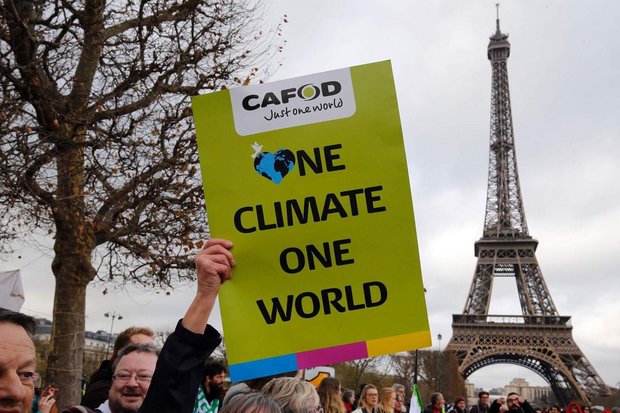
Thailand still has much to do after the global community agreed to the first universal, legally binding deal to stop global warming and is looking forward to collaborating in next-year's climate talks as a chair of the G77, observers say.
Adopted by the 195 parties to the United Nations Framework Convention on Climate Change (UNFCCC) on Saturday night in Le Bourget near Paris, France, the new climate agreement set a long-term goal to shift to a zero-carbon economy after two weeks of intense negotiations.
The deal also commits all countries to keep a global temperature increase to well below 2 degrees Celsius and to pursue efforts to limit it to 1.5°C.
The deal requires progress reviews every five years. Developed countries agreed to take the lead in mobilising financial support for $US100 billion a year for developing countries by 2020.
All parties agreed to adopt the historic agreement. However, the reduction of national greenhouse gas emission targets will be based on the individual plans of each country.
According to the UNFCCC, the Intended Nationally Determined Contributions (INDCs) submitted by all countries will be able to limit global temperature rises to 2.7°C above pre-industrial levels.
This is still far from the ambitious targets of 2°C, let alone the 1.5°C that would more effectively prevent severe consequences of climate change.
The agreement sets out a timeline for all countries to return to the table every five years with their own tougher plans. The first is expected to take place in 2020.
Each country will also be required to conduct systems for measuring, reporting and verification (MRV) on progress of their INDCs.
"This will demand more responsibility from Thailand especially when it has to return with a new target every five years," said Prasert Sirinapaporn, director of the Climate Change Management and Coordination Division of the Ministry of Natural Resources and Environment, who was also deputy chief of the Thai delegation at the Paris climate negotiations.
"We will still have more work to do. We pledge to work with all countries and comply with the deal,'' Mr Prasert told the Bangkok Post after adoption of the agreement on Saturday.

Mr Prasert said future work includes a revision of the new tougher target and conducting the MRV, which needs more resources.
Withoon Permwongsacharoen, director of the Mekong-Energy and Ecology Network (MEENet), suggested the Thai government be more sincere about developing renewable energy, aligning with a global push to green energy rather than investing in coal.
Jacques-Chai Chomthongdi, Thailand-based Oxfam's programme campaign and advocacy coordinator, said all parties must realise the time to heal the world is running out and they need to do more to become low carbon societies.
He said it is clear that each country's voluntary proposals to cut greenhouse gas emissions, including Thailand, have not yet produced any tangible results as the proposals will still increase global temperatures by 3.75-3.9°C.
He said countries are lacking in efforts to keep the global temperature increase to well below 2°C.
He said the agreement to fight climate change is still vague as it does not yet clearly state who should reduce which amounts and there is no clear action on how to achieve these goals.
Bantoon Sethasiroj, director at the Good Governance for Social Development and the Environment Institute, said Thailand has proposed reducing greenhouse gas emissions by 25% from current levels, and the energy sector will have to play a key role by incorporating clean technologies.
As Thailand attempts to do its part, Environmental and Natural Resources Minister Surasak Karnjanarat has announced the adoption of the Power Development Plan (PDP) that will increase renewable energy use and strengthen energy efficiency measures to help reduce greenhouse gas emissions.
He pledged Thailand will promote a voluntary-based carbon market in the industrial sector and increase forest areas nationwide.
However, most of the government's policies have been criticised by green activists.
They cited the controversial PDP which will replace gas dependency by increasing renewable energy sources in power generation from 7% currently to 20% -- part of which includes mega hydropower -- of total energy capacity by 2036.
But coal use will increase from 10% to 25%, possibly putting nine coal-fired power plants into the pipeline, raising concerns about Thailand's ability to achieve its INDC target and its credibility at future rounds of the talks.
Some infrastructure projects are being questioned as the government attempts to introduce Environmental Impact Assessment (EIA) shortcuts to speed up the construction process, overriding local objections.
Still, observers say Paris marked the first instance where 134 countries agreed on adopting a historic international climate agreement.